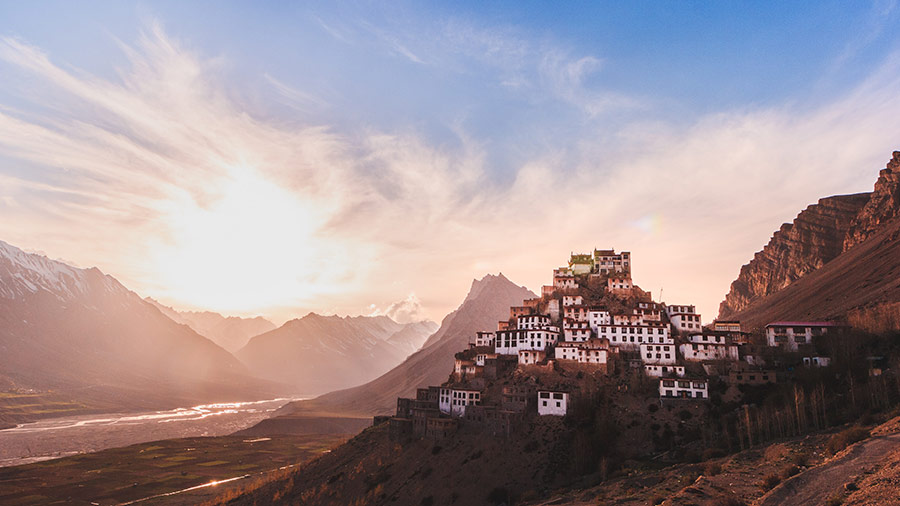India's public holidays include gazetted and restricted days, as is the norm. The country’s holiday schedule is divided across three classifications: gazetted, restricted, as well as state and union territory. Commercial establishments should note the schedule for the respective states where they are located.
The number of leave days and holidays given by an organization to its employees should comply with the prescribed numbers under all applicable state laws.
Formally employed workers are entitled to privileged leave, sick and casual leaves, besides other types of leaves as established by the company, such as marriage leave, private affairs leave, paternity leave, bereavement leave, exam leave, etc.
Privilege leave
Privilege leave is the same as vacation / annual / earned / paid leave.
Some examples:
The Delhi Shops and Establishment Act provides for the following privilege leave:
- Employees who have worked for at least one year with the establishment are entitled to privileged leave for a period of 15 days;
- Employees who have completed four months of continuous employment are entitled to at least five days of privileged leave;
- Employees are permitted to accumulate privilege leave up to three times of what is permitted to be used in one year, meaning that employees can accumulate up to 45 days; and
- Employees are also entitled to financial reimbursement in case they resign or are terminated from the establishment without having used the privilege leave.
Leave encashment policy: Treatment of outstanding leave
Privilege leaves are calculated differently for different states and are subject to encashment depending on the company policy.
In case an employee does not use all the privileges/earned leaves that were allowed to them, they may encash these outstanding leaves and earn a salary for the number of days that were allowed to be taken as leave but were not availed. The policy of leave encashment depends on the employer, and these policies may vary from employer to employer. Many organizations allow encashment of leave on one of the following:
- During the period of employment;
- At the time of retirement (including separation on account of resignation, retrenchment, etc.) of the employee; or
- At the termination of the employee.
Leave encashment during service is taxable in all cases as under section 89(1) of the Income Tax Act, 1961. Certain exemptions would be allowed for the amount received as leave encashment, and the balance would be taxable as per the income tax slab rates. Leave encashment is received by the employee at the time of separation from the employer or retirement. The maximum leave encashment exemption limit is up to INR 25,00,000.
The system computes the exemption based on the four factors that the minimum exemption amount considers. The following are the factors:
- Leave encashment amount;
- Exemption limit;
- Average monthly salary x number of months; and
- The salary includes basic pay, dearness allowance, and turnover basis commission. (Any other amount received is not to be included in the computation of salary.)
In the case of non-government employees, the exemption is limited to the least of the following:
- Cash equivalent of unutilized earned leave (earned leave entitlement cannot exceed 30 days for every year of actual service);
- Ten months’ average salary based on an average salary of the last 10 months immediately preceding the retirement; and
- Leave encashment received for delay, further subject to a limit of INR 2.5 million.
Full exemptions
Leave salary paid to the legal heirs of a deceased employee in respect of privilege leave standing to the credit of such employee at the time of death is not taxable.
Any payment by way of leave encashment received by Central and State Government employees at the time of retirement in respect of the period of earned leave at credit is fully exempt.
Casual or sick leave
The nomenclature of casual and sick leaves may vary from state to state. For example:
The Delhi Shops and Establishment Act makes the following provision for casual and sick leave:
- Casual leave (the Delhi Act does not distinguish between casual and sick leave) for a total period of not less than 10 days in every year;
- Employees who have completed one month of continuous employment are entitled to not less than one day of casual leave for every month;
- Employees cannot accumulate unused casual leaves; and
- The Bombay Shops and Establishment Act does not provide for any casual or sick leave.
Maternity benefits
Every woman is entitled to payment of maternity benefits at the rate of the average daily wage for the period of the employee’s actual absence from work. Apart from 12 weeks of salary, a female worker is entitled to a medical bonus of INR 3,500.
In the event of a miscarriage or medical termination of pregnancy, the employee is entitled to six weeks of paid maternity leave.
Employees are also entitled to an additional month of paid leave in case of complications arising due to pregnancy, delivery, premature birth, miscarriage, medical termination, or a tubectomy operation (two weeks in this case).
No company shall compel its female employees to do tasks of a laborious nature that interfere with the pregnancy or the normal development of the fetus.
Public holidays
The public holiday schedule is divided into three classifications:
- Gazetted;
- Restricted; and
- State and union territory.
Companies doing business with state and government authorities must note their respective holiday calendars.
Across India, there are three days designated as “national holidays” on which all establishments must provide a holiday to all employees, namely:
- Republic Day, January 26;
- Independence Day, August 15; and
- Gandhi Jayanti, October 2.
Irrespective of the law a company, industry, or organization follows, or whether they are public, private organizations, or MNCs, every entity must necessarily remain closed on these days. Organizations that need to work on those days need to get prior approval from the concerned authorities.
Public holidays in India 2026
The following list of 2026 holidays in India is based on the circular issued by the Ministry of Personnel, Public Grievances, and Pensions.
|
List of Public Holidays in India in 2026 |
||
|
Month |
Date and day |
Gazette holiday |
|
January |
26 (Monday) |
Republic Day |
|
February |
– |
– |
|
March |
4 (Wednesday) |
Holi |
|
21 (Saturday) |
Id-ul-Fitr |
|
|
26 (Thursday) |
Ram Navmi |
|
|
31 (Tuesday) |
Mahavir Jayanti |
|
|
April |
3 (Friday) |
Good Friday |
|
May |
1 (Friday) |
Budha Purnima |
|
27 (Wednesday) |
Id-ul-Zuha (Bakrid) |
|
|
June |
26 (Friday) |
Muharram |
|
July |
– |
– |
|
August |
15 (Saturday) |
Independence Day |
|
26 (Wednesday) |
Milad-un-Nabi or Id-e-Milad |
|
|
September |
4 (Friday) |
Janmashtami |
|
October |
2 (Friday) |
Mahatma Gandhi’s Birthday |
|
20 (Tuesday) |
Dussehra |
|
|
November |
8 (Sunday) |
Diwali (Deepavali) |
|
24 (Tuesday) |
Guru Nanak’s Birthday |
|
|
December |
25 (Friday) |
Christmas Day |
Source: DoPT Circular
Restricted and optional holidays in India in 2026
|
Non-Gazetted/Restricted Holidays in India in 2026 |
||
|
Month |
Date and day |
Holiday |
|
January |
1 (Thursday) |
New Year |
|
3 (Saturday) |
Hazarat Ali’s Birthday |
|
|
14 (Wednesday) |
Makar Sankranti; Magha Bihu / Pongal |
|
|
23 (Friday) |
Basant Panchami |
|
|
February |
1 (Sunday) |
Guru Ravi Das’s Birthday |
|
12 (Thursday) |
Birthday Dayananda Saraswati of Swami |
|
|
15 (Sunday) |
Maha Shivratri |
|
|
19 (Thursday) |
Shiva ji Jayanti |
|
|
March |
3 (Tuesday) |
Holika dahan |
|
19 (Thursday) |
Gudi Padava/Ugadi |
|
|
20 (Friday) |
Jamat-Ul-Vida |
|
|
April |
5 (Sunday) |
Easter Sunday |
|
14 (Tuesday) |
Vaisakhi /Visu/ Meshadi |
|
|
15 (Wednesday) |
Vaisakhadi (Bengal)/ Bahag Bihu (Assam) |
|
|
May |
9 (Saturday) |
Birthday of Rabindranath Tagore |
|
June |
– |
– |
|
July |
16 (Thursday) |
Rath Yatra |
|
August |
15 (Saturday) |
Parsi New Year’s day (Nauraj) |
|
26 (Wednesday) |
Onam |
|
|
28 (Friday) |
Raksha Bandhan |
|
|
September |
14 (Monday) |
Ganesh Chaturthi |
|
October |
18 (Sunday) |
Dusshera (Saptami) |
|
19 (Monday) |
Dussehra (Mahashtami) |
|
|
20 (Tuesday) |
Dussehra (Mahanavmi) |
|
|
26 (Monday) |
Maharishi Valmiki’s Birthday |
|
|
29 (Thursday) |
Karwa Chouth |
|
|
November |
9 (Monday) |
Govardhan Puja |
|
11 (Wednesday) |
Bhai Duj |
|
|
24 (Tuesday) |
Guru Teg Martyrdom Day Bahadur’s |
|
|
December |
23 (Wednesday) |
Hazarat Ali’s Birthday |
|
24 (Thursday) |
Christmas Eve |
|
Source: DOPT
State and Union territory holidays
The list of state and union territory holidays is quite large. Please click here – https://www.india.gov.in/state-and-ut-holiday-calendar – to review local holidays that apply to your place of business.
In addition to office closures, governments in the state and union territories often observe “dry days,” or days when the sale of alcohol is not permitted, on gazetted and state and union territory holidays. Dry days also routinely occur on local election dates.
Upcoming assembly elections in India (2025-2026)
Bihar assembly elections
- Phase I: November 6, 2025
- Phase II: November 11, 2025.
Assembly elections in India in 2026
The following states are scheduled for assembly elections in 2026. Official dates are yet to be announced by India’s Election Commission:
|
State |
Status |
Advisory notes for employers and HR |
|
Assam |
Dates to be announced |
Expect statutory paid leave on polling day for registered voters. |
|
Kerala |
Dates to be announced |
Plan for potential business closures and service-hour adjustments. |
|
Tamil Nadu |
Dates to be announced |
Consider scheduling flexibility and staffing buffers during campaign and polling periods. |
|
West Bengal |
Dates to be announced |
Review local government circulars for region-specific holiday declarations. |












